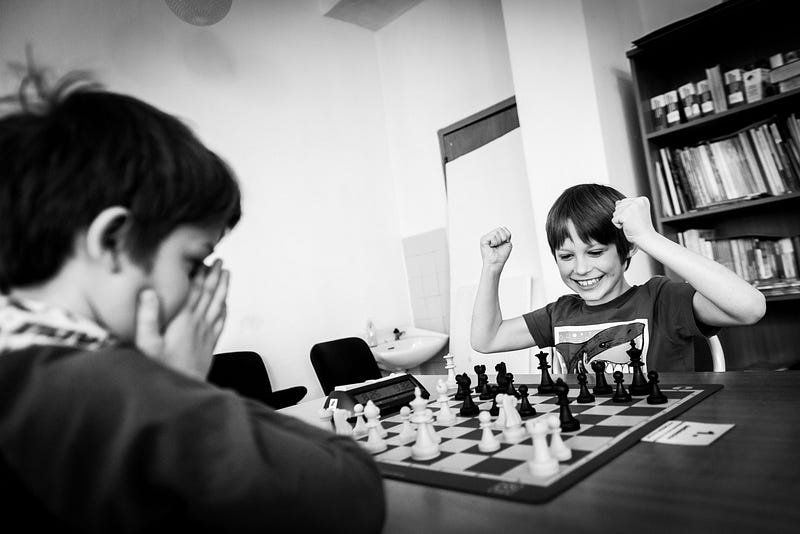How 26 Years of Chess Experience Enhanced My Writing Skills
Written on
Chapter 1: The Intersection of Chess and Writing
At just six years old, my father surprised my brother and me with a curious checkered wooden box, introducing us to the world of chess. Fast forward fourteen years, and I reached my peak rating of 1600 on chess.com. Life took its course, and I shifted to a more casual style of play. Nevertheless, my extensive chess experience has significantly influenced various aspects of my life, particularly my writing process. Viewing writing through the lens of a chess match has streamlined tasks like composing reports or research papers, particularly in the online arena.
So, in what ways has chess enriched my writing skills?
Section 1.1: The Importance of a Structured Opening
Initially, my chess skills were lacking, but discovering chess opening theories transformed my game. Understanding the foundational moves not only enhanced my mid-game but also led to victories. The principle of “not improvising” became paramount. Just as there are established patterns in chess, writing also benefits from a structured approach.
For instance, a research paper should start with a funnel leading to the knowledge gap, while a blog post typically begins with a hook, identifies a problem, proposes a solution, and sets expectations. Straying from these frameworks complicates the narrative and risks losing:
- The reader's interest
- The logical flow
- Consistency and cohesion
Adhering to established openings doesn't stifle creativity; rather, it allows for personal expression within a structured framework.
Subsection 1.1.1: Visualizing the Chessboard

Section 1.2: Precision in Word Choice
Chess players know the value of each piece; similarly, every word in writing carries significance. A poorly chosen word can undermine the strength of an article. This awareness drives me to scrutinize each word's purpose and contribution to the piece.
Should I retain or remove this word? Does it serve a function? Does it enhance clarity or coherence? Each writer develops their unique style—some favor elaborate language, while others opt for simplicity. Understanding my style helps me make informed choices.
A memorable quote from Garry Kasparov about Magnus Carlsen encapsulates this sentiment: “Magnus has a great ability to make the most of each piece while doing everything to preserve every single piece.” I strive to ensure that every word serves a purpose and adds value, even if I’m not the Magnus of writing.
Chapter 2: The Art of Winning in Writing
The first video, "Chess Visualizing: How To Remember Squares," delves into techniques for enhancing visual memory in chess, which parallels the importance of clarity and structure in writing.
In the second video, "HOW TO MEMORIZE AN ENTIRE CHESS BOARD," we explore strategies that can also be beneficial in organizing thoughts and ideas in writing.
Section 2.1: The Fallacy of Overcomplicating Moves
Winning in chess is rarely about executing numerous brilliant moves. Success often stems from solid foundational strategies over several moves, a brilliant stroke, or capitalizing on an opponent's mistake. Many novice writers strive to impress with flashy sentences, but only a few may resonate with readers.
This realization alleviates the pressure during the writing process; not every sentence needs to shine. Rather, a straightforward structure can lay the groundwork for impactful analogies or metaphors that elevate the writing.
Section 2.2: Recognizing Inflection Points
When analyzing a chess game, a visual representation of each player’s odds reveals crucial inflection points where the game can pivot. These moments dictate the outcome, much like the pivotal sentences in writing that can either engage the reader or lead them to disengage.
In blog entries, these key sentences often appear around the fourth to sixth line, while in research papers, they typically show up in the introduction's final paragraph. I place particular emphasis on these sentences, often formatting them to stand out and ensuring they are supported by relevant visuals.
In chess, a victory for one player signals defeat for another, but in writing, both the writer and the reader can emerge victorious. Thus, it is vital to focus on adding value for the reader, as success in writing is inherently collaborative, while failure rests solely with the writer.
Thank you for reading!